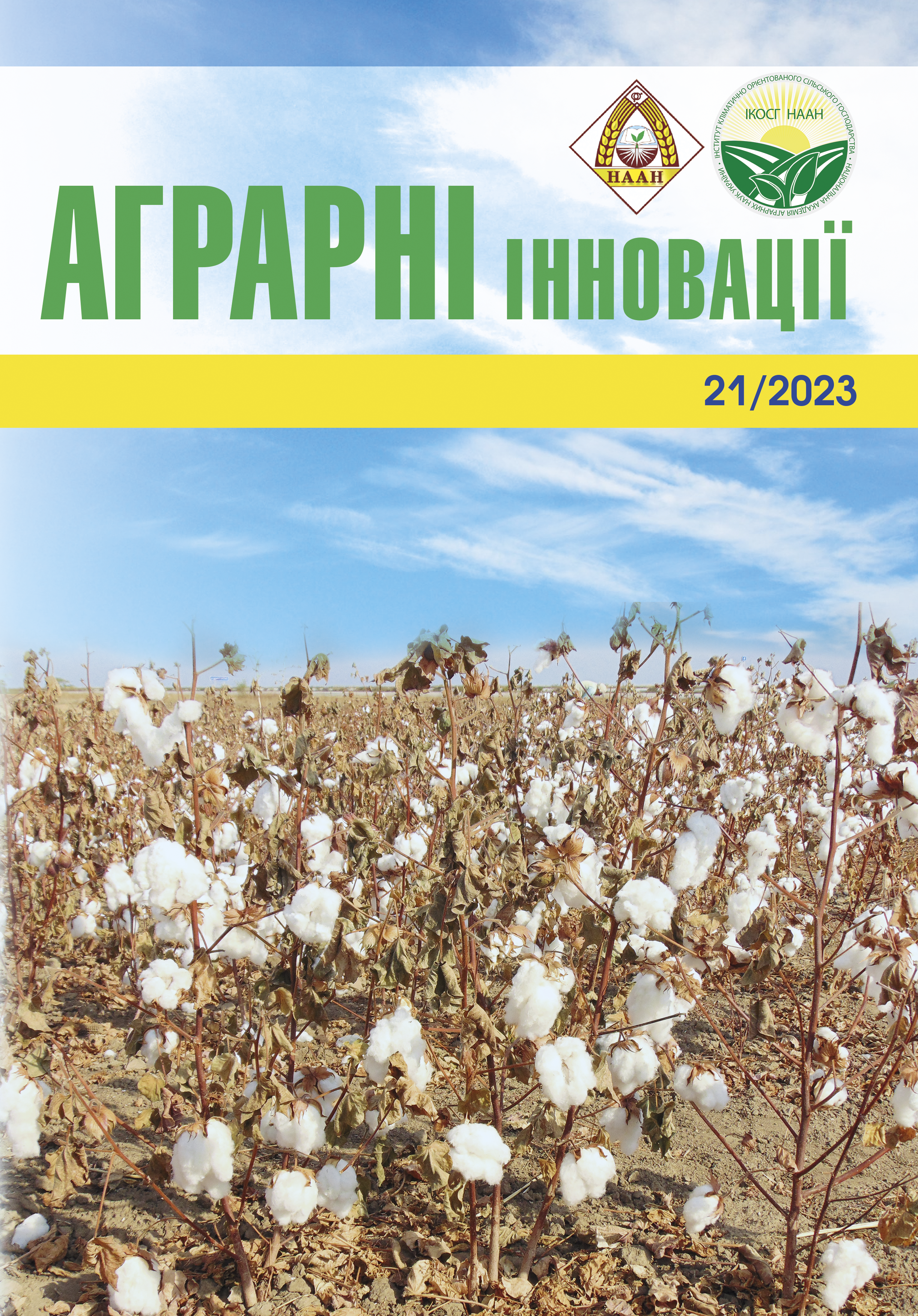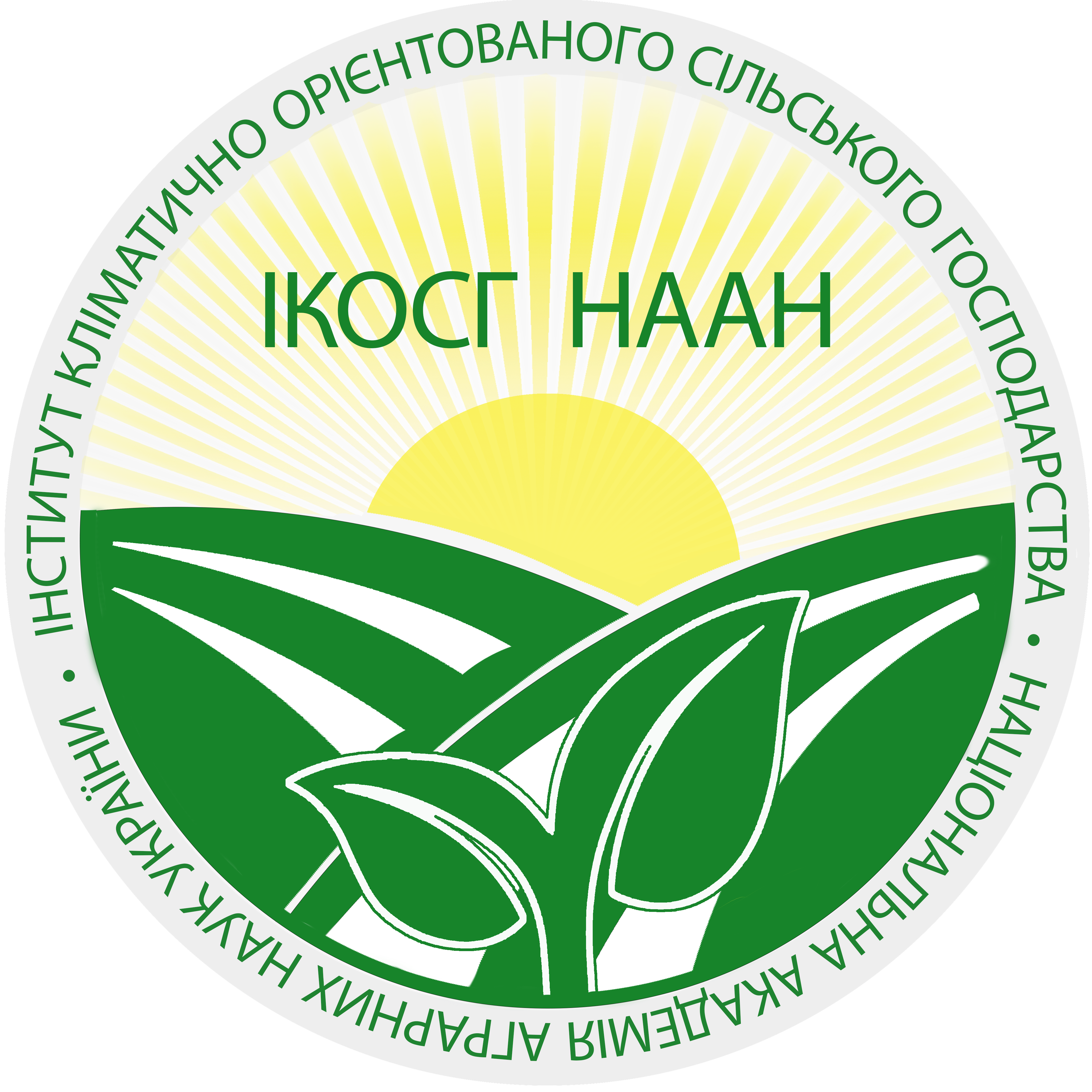Екологічні аспекти харчування: стійке, біодинамічне та органічне сільське господарство
Анотація
Мета. Оцінити вплив стійкого, біодинамічного та органічного аграрного господарства на екологічні аспекти,з урахуванням їхнього потенціалу для підвищення екологічної стійкості та сприяння здоровому харчуванню.Методи. Аналітичний огляд для здійснення всебічногоаналізу наукових джерел, публікацій та звітів, що стосуються стійкого, біодинамічного та органічного сільськогогосподарства, а також їх впливу на екологічні аспектихарчування; компаративний аналіз з метою порівнянняефективності стійкого, біодинамічного та органічногометодів ведення аграрного господарства з традиційними методами в аспектах екологічної стійкості та якостіпродукції харчування; метод моделювання для оцінкимайбутнього розвитку органічного сільського господарства та його впливу на екологічні аспекти харчування.Результати. Розглянуто аспекти сталого, біодинамічного та органічного сільського господарства, аналізуючи їх вплив на довкілля, якість харчування та здоров’ялюдства. Основна увага приділяється недолікам індустріального сільського господарства, яке, незважаючина високі показники урожайності, негативно впливає наздоров’я тварин, людини та довкілля. Розглянуто стале,біодинамічне та органічне сільське аграрне господарство як альтернатива, яка включає застосування принципів та методик, спрямованих на мінімізацію шкоди для людини, тварин та довкілля. Обгрунтовано важливістьпереходу до сталого, біодинамічного та органічногосільського господарства для забезпечення екологічноїбезпеки, здорового харчування та стійкого розвиткусуспільства. Висновки. Стійке сільське господарствовідіграє ключову роль у збереженні природних ресурсівдля використання майбутніми поколіннями, створюючиродючі ґрунти, що є важливим для ефективного роступродовольчих культур. Використання стійких аграрнихметодів дозволяє ефективно використовувати ресурсипрісної води та забезпечувати її чистоту від токсичнихзабруднювачів для інших екосистем та споживачів.Стійке сільське господарство зменшує залежність відсинтетичних добрив та пестицидів та сприяє різноманітності рослинного життя. Забезпечення стійкостісільського господарства має включати в себе не тількиекономічну рентабельність, але й екологічну чистотута соціальну та економічну справедливість. Розвитокбіодинамічного та органічного аграрного господарствасприяє не лише виробництву здорових продуктів, алей зміцненню екологічної, соціальної та економічної стійкості країни.
Посилання
2. Багорка М.О., Сергієнко А.А. Екологізація виробництва аграрних підприємств як інноваційна складова їх розвитку. Економічні студії. 2021. № 3(33). С. 10–16.
3. Василенко І.А., Чупринов Є.В., Іванченко А.В., Скиба М.І., Воробйова В.І., Галиш В.В. Зелені технології у промисловості: Монографія. Дніпро : Акцент ПП, 2019. 366 с.
4. Еколого-економічні засади збалансованого аграрного виробництва та використання природних ресурсів агросфери: монографія. Київ : ДІА, 2022. 408 с.
5. Гунько Л. Формування сталого (збалансованого) землекористування – базова основа розвитку економіки землевпорядкування в Україні. Агросвіт. 2022. № 9–10. С. 51–61. https://doi.org/10.32702/2306-6792.2022.9-10.51
6. Івашура А.А. Сучасні тенденції розвитку зеленої економіки в умовах глобалізації та мінімалістичного руху: монографія. Харків : ХНЕУ ім. С. Кузнеця, 2022.113 с. URL : http://surl.li/heowd (дата звернення 15.11.23).
7. Кононенко Ж.А. Інтенсифікація як складова економічної ефективності використання землі. Ефективна економіка. 2017. № 4. С. 50–56.
8. Лагодієнко Н.В., Лагодієнко В.В. Оцінка економічної складової сталого розвитку аграрного виробництва в умовах відкритості національної економіки. Український журнал прикладної економіки. 2019. Том 4. № 4. С. 265–281. DOI: https://doi.org/10.36887/2415- 8453-2019-4-31.
9. Македон В., Михайленко О., Красніков П. Управління розробкою та реалізацією національних і міжнародних проектів у сфері відновлювальної енергетики. Підприємництво та інновації. 2023. №(26). С. 5–13. https://doi.org/10.32782/2415-3583/26.1
10. Сітковська А.О., Масляєва О.О. Земельно-ресурсний потенціал аграрного сектору: стан та особливості використання. Агросвіт. 2023. № 9-10. С. 77–81.
11. Управління земельними ресурсами та землекористуванням: базові засади теорії, інституціолізації, практики: монографія. Біла Церква: ТОВ «Бiлоцеркiвдрук», 2021. 227 с.
12. Adam D.H., Supriadi Y.N., Ende Siregar Z.M.E. Green Manufacturing, Green Chemistry And Environmental Sustainability: A Review. International Journal of Scientific & Technology Research. 2020. № 9(04). pp. 2209–2211.
13. Andryeyeva N., Khumarova N., Nikolaychuk T. Aligning the social, environmental, and economic interests of “green growth” of the Ukrainian nature reserve fund objects. Environmental Economics. 2019. № 10(1). P. 93–104. doi:10.21511/ee.10(1).2019.07
14. Makedon V., Dzeveluk A., Khaustova Y., Bieliakova O., Nazarenko I. Enterprise multi-level energy efficiency management system development. International Journal of Energy. Environment, and Economics. 2021. Vol. 29. Iss. 1. pp. 73–91.
15. Orsini S., Padel S., Lampkin N. Labour.Use on Organic Farms: a Review of Research since 2000. Organic Farming. 2018. Vol. 4. Is.1. pp. 7–15. https://doi.org/10.12924/of2018.04010007






